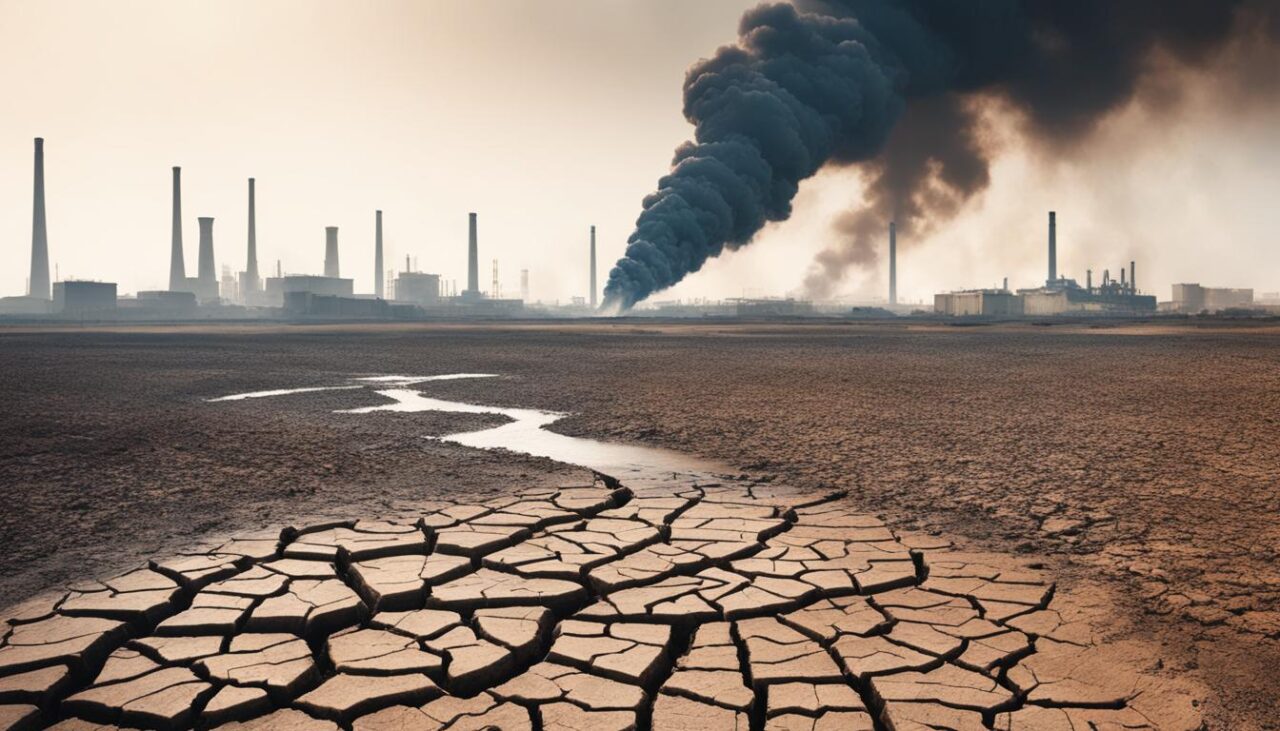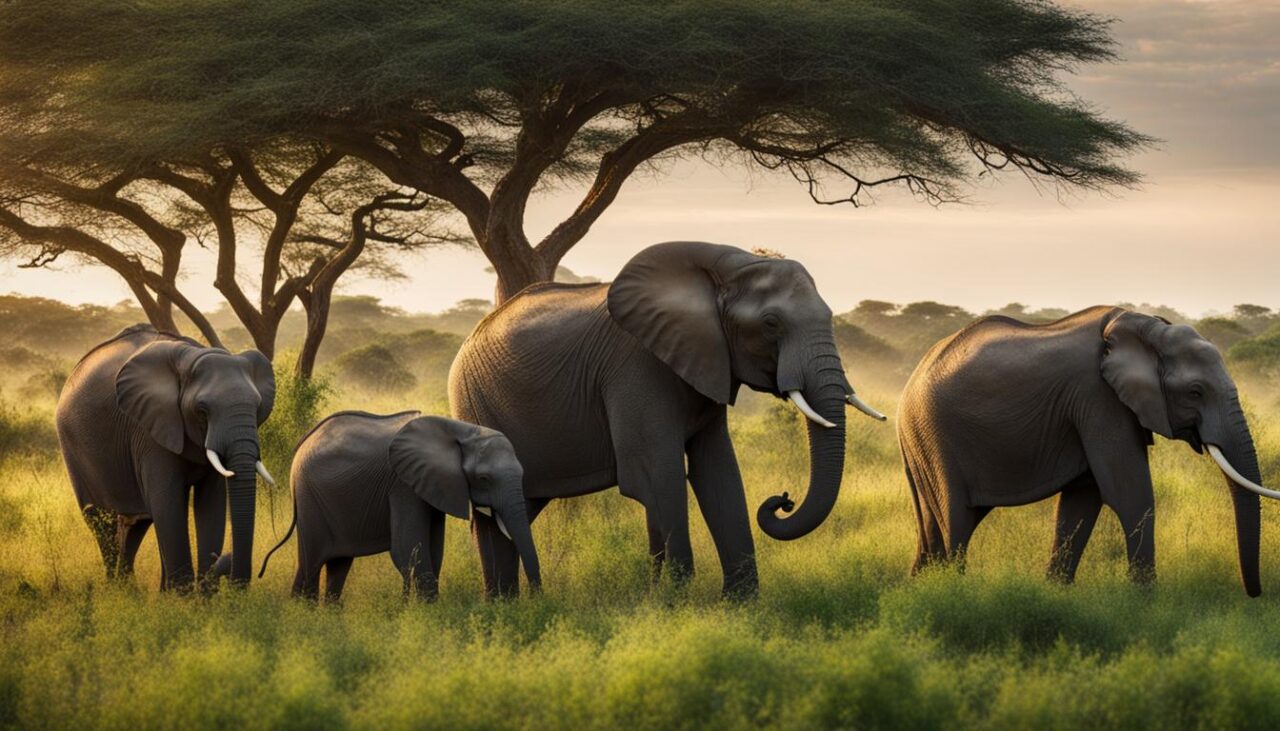Africa is an essential player in the global ecology due to its unique ecosystems and natural resources. However, the continent also faces various environmental challenges. Africa's environmental challenges, such as climate change, pollution, and deforestation, impact not only the continent but the world as a whole. In this section, we will explore Africa's environmental challenges in the context of global ecology. We will also highlight the steps being taken to address these challenges and ensure a sustainable future for the continent and the world.
To illustrate the significance of Africa's environmental challenges, let's take a look at this image:
Africa's Environmental Challenges: Climate Change and Sustainability
Africa faces unique challenges when it comes to climate change, significantly impacting the continent's diverse ecosystems, agriculture, and water resources. The effects of increasing temperatures, droughts, and flooding have led to food insecurity and poverty. To mitigate these challenges, sustainability must be the focus in the region, coupled with sustainable development initiatives that provide greater resilience to communities across the continent.

“Climate change in Africa affects us all, and it is our responsibility to implement sustainable solutions that build resilience, adapt, and mitigate the effects of climate change.” – Inger Andersen
The African Union's Agenda 2063 recognizes the urgent need to address Africa's environmental challenges. Additionally, the Africa Adaptation Initiative (AAI) prioritizes the adaptation of African countries to climate change through sustainable initiatives tailored to the unique challenges facing the continent.
Stakeholders in Africa's private sector must lead the way in sustainable practices while simultaneously driving economic development. Efforts must be undertaken to transition from extractive, unsustainable industries towards renewable energy and regenerative agriculture methods.
Conservation Efforts and Ecosystem Protection in Africa
Conservation is critical to protecting Africa's unique ecosystems and wildlife from the impacts of environmental challenges like climate change, pollution, and deforestation. Several initiatives are in place across Africa to address these challenges and safeguard biodiversity and natural habitats.
One successful conservation project is the South Africa-based Rhino Revolution, which focuses on rhino and elephant protection. Thanks to the concerted efforts of park rangers and local communities, Rhino Revolution has managed to reduce poaching and improve the survival rates of these endangered animals. Another important initiative is the Great Green Wall, a vast project stretching across the Sahel region, which aims to combat desertification and promote sustainable land use practices.
Despite these successes, conservation efforts in Africa face several challenges. One of the primary difficulties is the lack of funding and resources, making it challenging to sustain long-term conservation projects. Additionally, there are issues with poaching and illegal wildlife trafficking, which can undermine the efforts to protect vulnerable species from extinction.
Nevertheless, sustainable tourism presents an opportunity to support conservation initiatives and promote environmental education. Sustainable tourism practices can help raise awareness about the importance of preserving natural habitats, while also providing economic benefits to local communities.

Protecting Africa's unique ecosystems and wildlife is crucial to sustaining the continent's natural heritage and promoting environmental sustainability worldwide. Through collaborative efforts and sustainable practices, we can preserve these vital natural resources and ensure their survival for generations to come.
Addressing Pollution and Environmental Degradation in Africa
Africa's environmental challenges are exacerbated by pollution and environmental degradation, posing a significant threat to its ecosystems and human health. The uncontrolled dumping of plastic waste, air pollution from transport and industry, and water pollution from inadequate sanitation systems are key sources of environmental degradation. These pollutants lead to long-lasting damage to ecosystems and contribute to health issues such as respiratory disease, skin infections, and cancer.
Efforts are being made in Africa to mitigate the effects of pollution and environmental degradation through various policies, awareness campaigns, and innovative solutions. The African Union adopted the African Green Stimulus Programme in 2020, which aims to promote sustainable economic recovery while preserving the environment. The program outlines measures to prevent and manage pollution and promote sustainable agriculture, among other initiatives.
“We will choose a path that brings about a more sustainable future, no matter the obstacles,” says President of Rwanda, Paul Kagame, “We have to protect our planet and promote sustainable living.”
Rwanda is one of Africa's leading countries in environmental sustainability, implementing a comprehensive ban on single-use plastics and launching an e-waste recycling facility in partnership with the United Nations.
There are also innovative solutions being utilized, such as solar-powered water filtration systems developed by the non-profit organization WaterisLife, which provides access to clean drinking water in rural communities while reducing plastic waste.

Despite these efforts, more needs to be done to address Africa's environmental challenges and combat pollution and environmental degradation. Collaboration between African governments, international organizations, and local communities is vital in driving sustainable development and protecting Africa's natural heritage for future generations.
Battling Deforestation and Promoting Reforestation in Africa
Deforestation is a major environmental challenge faced by Africa, driven by factors such as logging, agriculture expansion, and urbanization. The impact of deforestation on ecosystems, climate, and communities is substantial – increased carbon emissions, soil degradation, loss of biodiversity, and disrupted water cycles are just a few of the consequences.
To combat deforestation and promote sustainable land use practices, green initiatives and strategies are being implemented across Africa. One such initiative is the African Forest Landscape Restoration Initiative (AFR100), which aims to restore 100 million hectares of degraded forest landscapes by 2030 through reforestation, restoration, and improved land use practices.
“AFR100 is an exciting opportunity to bring degraded land back to life, empower communities, restore vital ecosystems and mitigate climate change through carbon sequestration,” said Alice Ruhweza, Africa Region Director for World Wildlife Fund (WWF).
Other organizations such as Greenpeace Africa and the African Development Bank (AfDB) are also working on reforestation projects and supporting local communities to adopt sustainable forest management practices. In addition, governments across Africa are introducing policies to limit deforestation and incentivize sustainable forestry and land use.
Reforestation not only helps to mitigate the impacts of deforestation but also provides multiple benefits to communities and the environment. Reforestation can enhance carbon capture and storage, protect watersheds, prevent soil erosion, promote biodiversity, and provide livelihood opportunities and economic benefits for rural communities.
Conclusion
Africa's environmental challenges are significant and require urgent attention. The impact of climate change, pollution, deforestation, and other environmental issues on Africa's ecosystems and communities cannot be ignored.
It is crucial for African countries to collaborate in addressing these challenges, taking sustainable measures to preserve their natural resources and protect their people. International partnerships and support are also essential to enable Africa to achieve its environmental sustainability goals.
The future of Africa's unique ecosystems, wildlife, and natural resources depends on the continued efforts to combat these environmental challenges. Through sustained efforts, it is possible to ensure that Africa's natural heritage is preserved for future generations to come.
Africa's environmental challenges are global challenges that require collective responsibility. We must act now to protect Africa's environment and secure a sustainable future for all.







